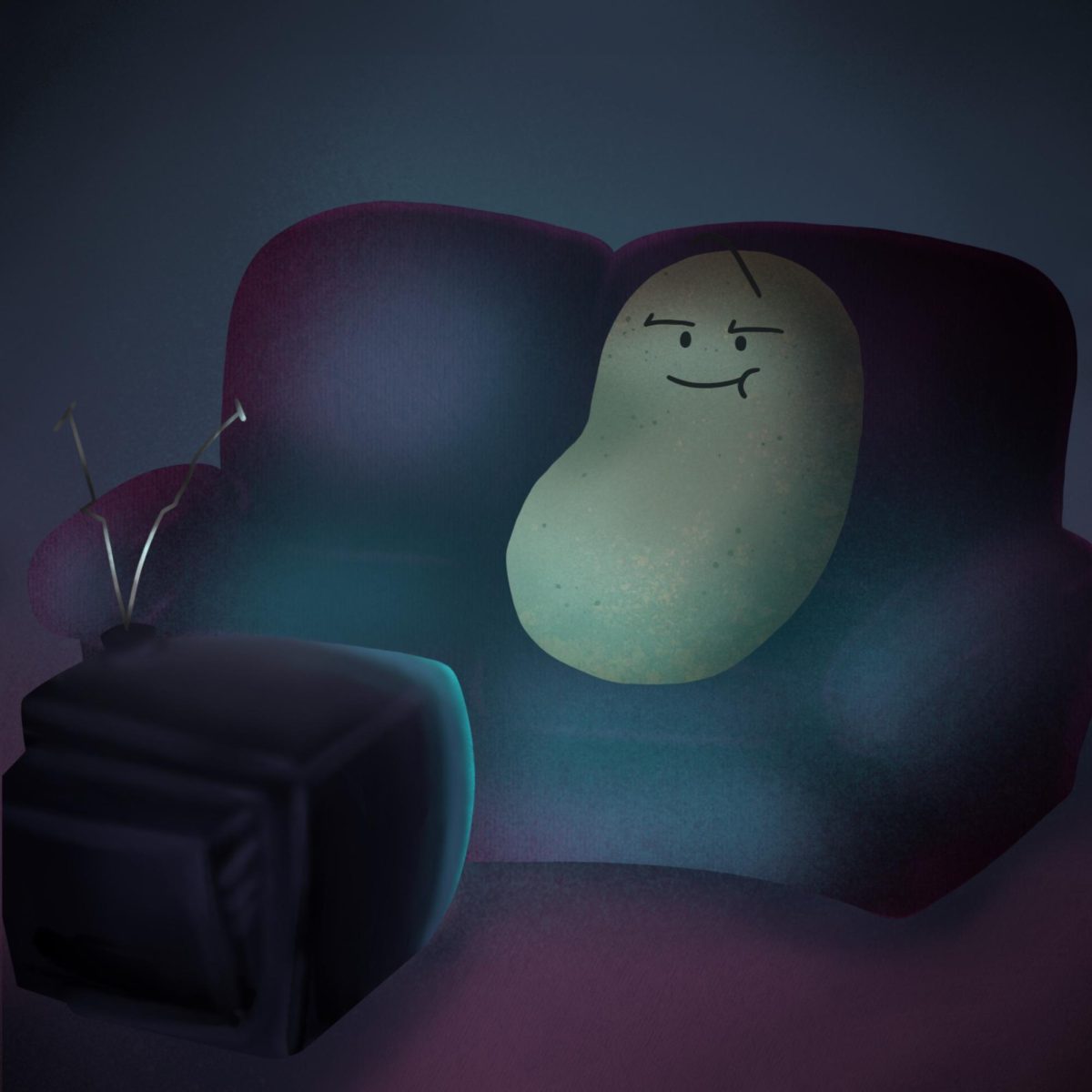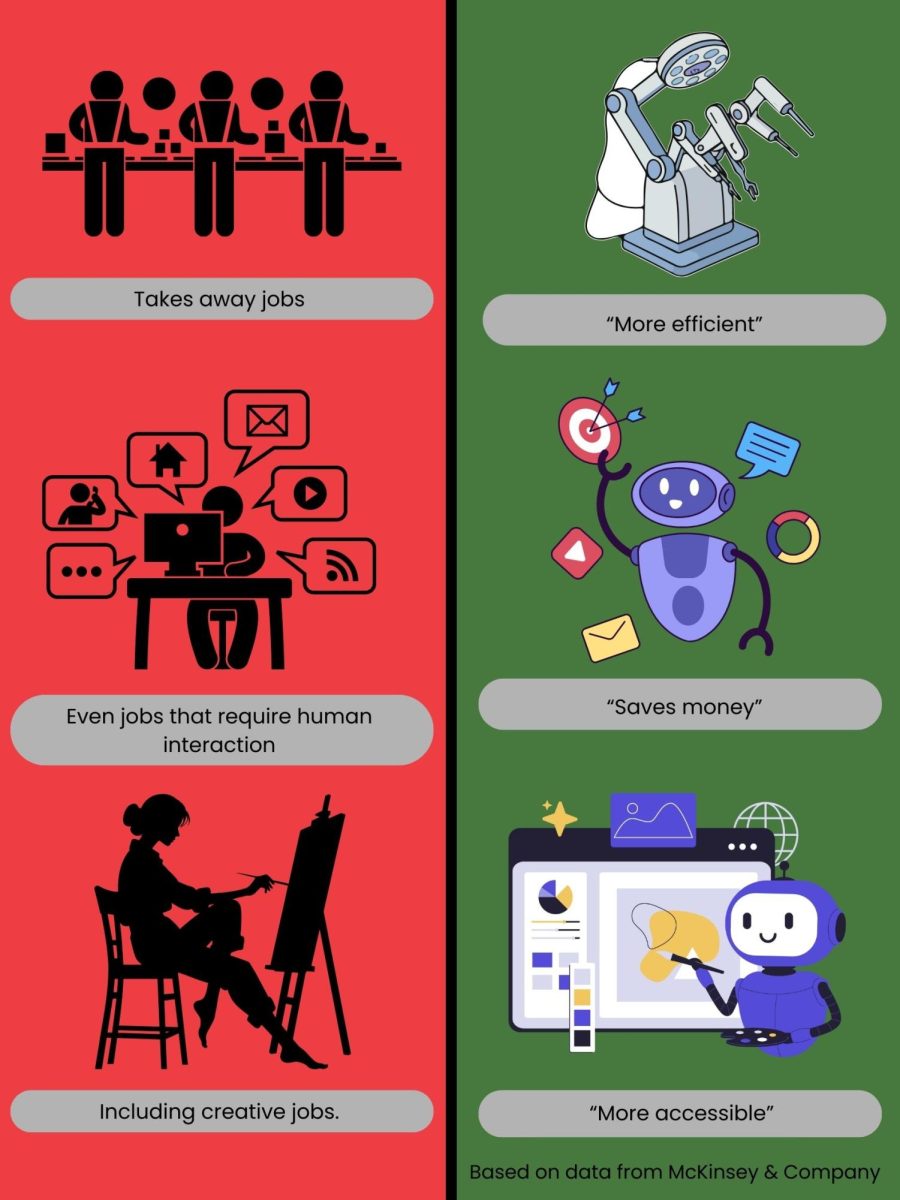We have all been in the position of enjoying an episode of a newly-released television series just to find that when you go to click “Next Episode” that the next episode hasn’t been released yet. Checking all your boxes? Grabbing your attention? Major cliffhanger has you on the edge of your seat? Bummer. You will just have to wait until next week. Times like these make us grateful for seasons of TV shows that are released on streaming services all at once so we can binge the new release, avoiding wait time and the suspense of not knowing what happens next. So much so that we don’t realize how detrimental binge watching new releases can be.
New TV show seasons on streaming platforms today typically release episodes in two different formats: all at once or once a week. Series that release a season all at once often result in having their new release binged by fans immediately, which is harmful to both the art of television and to personal well-being.
It is important to understand why we as a society are so prone to binging television. Binge-watching an enjoyable show causes your brain to produce dopamine, a chemical that simulates feelings of happiness and excitement. This production of dopamine makes us feel good, so much so that our brain craves the activity that activates the chemical’s release, leaving us with an addiction to binge-watching and the wave of happiness that follows suit. These addictive tendencies have a major impact on our physical well-being. Excessive binge-watching has been linked to anxiety and depression, back problems and lack of physical activity and its related effects. The biggest problem about binge-watching is that most of us can not stop ourselves. We possess very little physical restraint when it comes to guilty pleasures of the brain such as this, and we may not even realize its negative impacts on our mental and physical health. While this alone is enough to suggest that binge-watching is a problematic habit, it is also important to explore binge-watching culture’s detrimental impact on the art of TV production and writing as well as the communities surrounding it.
As an avid TV enthusiast, there is something to be celebrated about the experience and the community that surrounds a TV show’s weekly release. Counting down the day of the week that the new episode airs, eagerly watching the new episode, then turning to online discussions on sites like Reddit, TikTok and X to examine each and every detail with people just as passionate as yourself. It quickly becomes a culture, a community of individuals engaging in open discussion on a topic they all find joy in. My first introduction to this was in early 2023, when a TV show adaptation of the popular video game “The Last of Us” began airing on a weekly basis. This series had me awaiting every single Sunday with intense anticipation to see how the show would further develop. I really enjoyed being able to soak in a singular hour-long episode and proceed to watch fans delve into the details online after the newest episode’s release. Participating in this culture was so exciting to me because I was able to experience an engaging story alongside millions of other viewers. It was not a race to see who could binge the whole thing, rather an adventure alongside others to simply enjoy a piece of media. As much as I hated waiting each week to find out what would happen next, I am so grateful that the showrunners forced me to pace myself and get caught up in the experience.
Pacing a show out with weekly releases also increases the audience’s attention to detail and appreciation for the creative process. TV shows often take over a year to fully produce a new season. Perfecting plotline, character writing, cinematography and editing require an immense amount of hard work and dedication from the people who make a TV show possible. When this year-long endeavor is released to the public weekly, the audience are forced to dwell on the singular episode’s detailing, pay attention to the littlest aspects and marinate in their questions and predictions for an entire week. When a show allows its viewers to binge it the whole way through immediately upon release, it sacrifices the guarantee of the audience’s appreciation for hard work and intricacies. When you binge-watch an entire newly released season, naturally, the details begin to blend together. You no longer focus on small dialogue scenes or easter eggs, nor the cinematography and editing. Major plot points are the only thing that stood out in that static binge-watching sea. And to put it simply, the effort of production versus audience appreciation ratio is highly uneven. How is it right that a team of innovative individuals can put a considerable amount of effort into creating an expression of art for over a year, just for most audience members to completely finish it in less than 24 hours?
This argument against all at once releases is coming from someone who’s more than guilty of binge-watching. FX’s “The Bear” released all 10 episodes of its third season on Hulu in mid-June, which I binged in the span of a weekend. I was so excited for this release, given I had thoroughly enjoyed the first two seasons and could not stop myself from watching every single episode as soon as possible. Other summer releases like “My Lady Jane,” “A Good Girl’s Guide to Murder” and season four of “The Umbrella Academy” met similar fates. I loved these series so much that I just had to keep watching them, and when I was done, I just felt empty. I had prioritized finishing the shows all the way through to the point that I had done very little actual thinking about them. No self-reflection, no mental notes of plotline or cinematography that either impressed me or fell short. I barely had processed what I’d spent multiple hours watching. Of course, I am being slightly overdramatic. All of these series proved to be enjoyable, but I can’t help myself from thinking that I and the rest of these audiences would have truly enjoyed them more if we were forced to separate from our selfish, addictive tendencies and instead enjoy the art.
I suppose our societal normalization of binge-watching reveals a lot about what we value as a society: instant gratification and an escape from the outside world. While it is fair to feel like binging TV is that emotional outlet, it’s still an art form, an experience, a product of someone’s passion. It is meant to teach lessons and make audiences feel things. When sped through by mindless binge-watching, that meaning disappears. We as a society either need to get much better at controlling our irresponsible habits in the name of health and preserving the art of television, or we need to be forced to.










